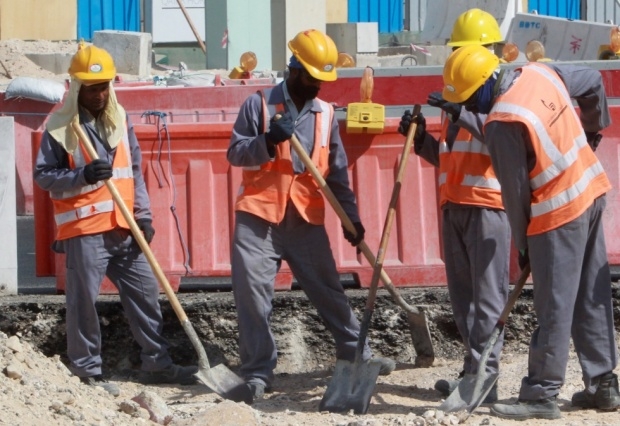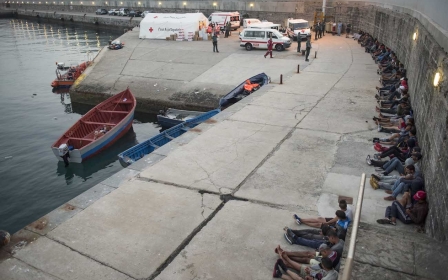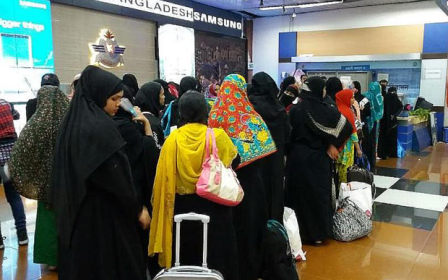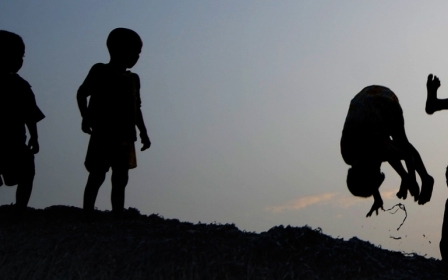Hotel companies failing to protect migrant workers in Qatar and UAE: Report

Major hotel companies are failing to protect hundreds of migrant workers they employ in Qatar and the United Arab Emirates, as both countries prepare to host major global events, a new report has revealed.
In "Inhospitable: How hotels in Qatar and the UAE are failing migrant workers," the UK-based Business and Human Rights Resource Centre (BHRRC) concluded that several hotel groups failed to implement the policies they had set in place to protect workers' rights.
The rights group based its findings on interviews with workers, public disclosure of abuse in various hotels and surveys it sent to 17 companies representing 68 hotel brands with more than 200 hotels across Qatar and the UAE.
All the worker testimonies included in the BHRRC report were anonymous amid fears of retaliation.
The human rights abuses ranged from the confiscation of passports to curfews being imposed on workers and bans on workers accessing their bank accounts, the BHRRC found.
New MEE newsletter: Jerusalem Dispatch
Sign up to get the latest insights and analysis on Israel-Palestine, alongside Turkey Unpacked and other MEE newsletters
Marti Flacks, BHRRC's deputy director, commended hotel companies for "building human rights into their global policies", but said their failure to enforce those policies in Qatar and the UAE would put migrant workers at risk of exploitation.
"Many [hotel companies] are failing to protect migrant workers in Qatar and the UAE, who risk falling through the gaps," Flacks said in a statement.
"Hotel chains will continue to expose migrant workers to an unacceptable risk of abuse."
Among the 17 companies listed in its report, 10 failed to demonstrate to BHRRC how they protect their workers, despite reports documenting abuse.
BHRRC said gaps between policy and practice emerged from the hotel industry's business model: between the hotel companies, third-party property owners and subcontractors, the responsibility for workers' rights gets lost, the group said.
Policy not translating into practice
Several hotel companies did not respond to the BHRRC survey before it published its findings: Accor Hotels, Deutsche Hospitality, Jumeirah Group, Kempinski Hotels, Millenium and Copthorne Hotels, Minor International, Rotana, Shangri-La, the Indian Hotels Company and Wyndham.
Only three of the 17 companies - AccorHotels, Radisson and Whitbread - mention protections for migrant workers in their human rights policy, while Four Seasons is the only company surveyed that has a policy banning third-party contractors and suppliers from keeping workers' passports.
Kempinski Hotels, however, did write a response to BHRCC's survey, but after the rights group compiled its report.
The report comes as both Qatar and the UAE face accusations of human rights abuses over their treatment of migrant workers, with thousands of labourers coming from South Asia to both Gulf nations to work.
Middle East Eye sent a request for comment to the 17 companies listed by BHRRC.
Kempinski Hotels was one of only two companies that responded to MEE by publication time late Wednesday. It said that BHRRC's report was "inaccurate" and that the "safety and wellbeing of its employees is a priority" for the company.
"We have robust policies and procedures in place, designed to comply with all local and international laws and requirements," a spokesperson told MEE.
"We also carry out regular surveys with our employees, to make sure we understand any concerns they might have."
Whitbread also contested the report and said its policies are in line with the UN guiding principles on business and human rights. It also said that it commits to the protection of migrant workers in its responsible sourcing policy.
Despite international pressure to change the legal systems governing workers' rights, both Qatar and the UAE continue to use the Kafala sponsorship system, which bans employees from switching jobs without the permission of their employers.
Still, last year Qatar made a partial change to its law to allow most migrant workers to leave the country without permission from their employers. This law does not include domestic workers.
The UAE adopted a law in 2017 to provide domestic workers with the same labour protections as other workers.
Middle East Eye delivers independent and unrivalled coverage and analysis of the Middle East, North Africa and beyond. To learn more about republishing this content and the associated fees, please fill out this form. More about MEE can be found here.




